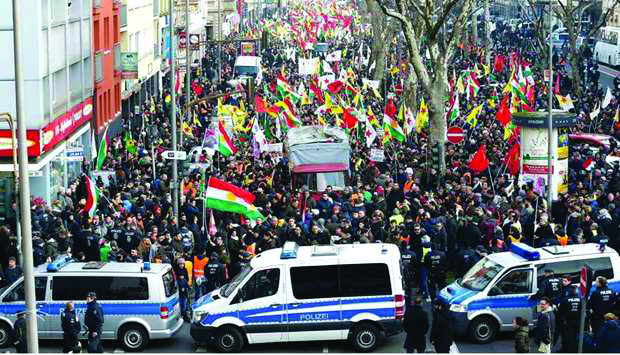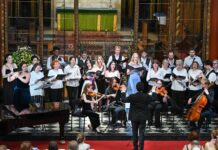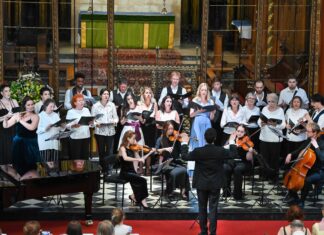By Muriel Mirak-Weissbach
Special to the Mirror-Spectator
BERLIN — As the Turkish military offensive in Afrin has escalated, the caretaker government in Germany has come under growing pressure to intervene to stop the bloodshed. Since Germany has supplied Turkey with military equipment, its role has been subject to harsh criticism. Photographs of the Turkish actions aired on television confirmed suspicions that German tanks were indeed involved in the aggression against the YPG, the Syrian Kurdish militias, who have been battling IS. Foreign Minister Sigmar Gabriel declared that any decision regarding modernization of Turkey’s military — an item which had been discussed at the beginning of the year in bilateral meetings — would be put on ice, and deferred to the new government.

That, however, did little to quell protests. In several cities on January 27, Kurds organized massive demonstrations; in Cologne, an estimated 20,000 people took to the streets; some were waving flags of the outlawed PKK and banners with PKK leader Abdullah Öcalan’s image, and this led the police to end the action. Again, on the following weekend, protest actions took place in several cities, and they are bound to continue and expand unless the conflict ends.
On February 2, a group of about a hundred German intellectuals and artists issued an open letter to the Chancellor and to the Foreign Minister, demanding that they and the EU intervene to halt the Turkish assault. Published in major German as well as Kurdish media, the letter read as follows:








